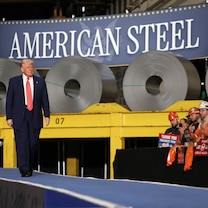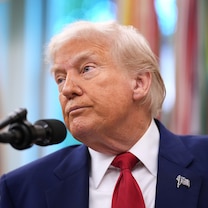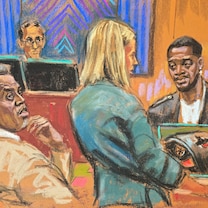Eye on the City: Do Cameras Reduce Crime?
NYPD readies 3,000 surveillance cameras, but are they effective?
July 9, 2007 — -- In many American cities, you can bet someone's watching when you walk the streets.
In the name of crime prevention and the war on terror, police departments around the country have set up surveillance cameras to keep an eye on troublemakers.
The New York Police Department announced Monday that it was creating a web of surveillance in lower Manhattan that will eventually include 3,000 public and private security cameras to track terrorists. By the end of this year, 116 license plate readers will monitor cars moving through the area, which is the city's financial district.
A spokesman for the department told ABCNEWS.com that footage collected by the NYPD's cameras would be kept for a 30-day period before it is discarded or recorded over. "It would be used to intercept a threat coming our way but not to collect data indiscriminately on individuals," NYPD spokesman Paul Browne told The New York Times.
The new initiative adds to the extensive network of cameras that already watch New Yorkers. Nearly 4,200 public and private surveillance cameras are currently located in downtown Manhattan, according to the New York Civil Liberties Union.
Other cities, including Chicago and Los Angeles, have expanded their use of public surveillance cameras and tout the effectiveness of the technology. Some of these cameras, which can cost up to $60,000 each, have night-vision capabilities and can be remotely controlled to pan, tilt, zoom and rotate.
Over the last few years, the Chicago Police Department has set up more than 500 cameras throughout the city. And the CPD claims that the web of surveillance has been an important crime-fighting tool, resulting in more than 1,200 arrests since February 2006.
"Our preliminary research shows that they are effective, especially left in places for over 180 days," said Jonathan Lewin, the CPD's commander of information services. "Once it's in, it's hard to move because the community loves it. If they don't see the camera there one day, we get calls."
The cameras have provided valuable forensic evidence in crime and terror investigations, such as the recent blundered car bombings and the July 7, 2005, terror attacks in London where British officials were able to track the movements of the perpetrators and make arrests.





